Los Datos Conference 2023
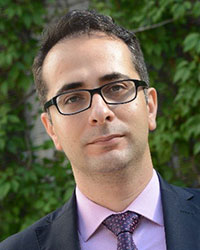 Adel Alaeddini, Ph.D.
Adel Alaeddini, Ph.D.
Associate Professor of Mechanical Engineering, Klesse College Dean Fellow for Research, Faculty Fellow of the School of Data Science, Director, Center for Adv. Man & Lean Systems (CAMLS), Director of Advanced-Data Engineering Lab, The University of Texas at San Antonio
Dr. Alaeddini’s research interests involve both theoretical and applied aspects of statistical learning and data analytics integrated with engineering knowledge and management science with applications in manufacturing, logistics, and healthcare. He has received a number of awards including the Air Force Young Investigator Award, NIH, AFRL, DHS, VA, and USDA. He has contributed to over 50 peer-reviewed publications in venues such as IISE Transactions, POMS, and Energy. Dr. Alaeddini is an associate editor of the Journal of Applied Statistics, Healthcare Management Science, and IISE Transactions on Healthcare Systems Engineering. He is currently serving as the Technical Vice President of the Institute of Industrial and Systems Engineers (IISE).
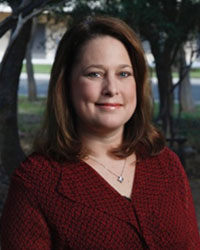 Nicole L. Beebe, Ph.D.
Nicole L. Beebe, Ph.D.
Melvin Lachman Endowed Chair, Professor and Chair, Information Systems & Cyber Security, Assistant Vice President, Faculty Research Development, The University of Texas at San Antonio
Dr. Nicole L. Beebe previously served five years as the Director of The Cyber Center for Security and Analytics at UTSA. Dr. Beebe’s research interests relate to cybersecurity, cyber analytics, digital forensics, and data analytics with applications to insider threat detection and analysis, IoT security and forensics, and cyber threat hunting. She has published approximately 50 peer-reviewed articles in top journals and conferences that have been cited over 1,700 times. Her research has been funded by the National Science Foundation, the Department of Homeland Security, various Department of Defense agencies, several industry partners, and has resulted in a patent-pending cyber search algorithm and multiple software platforms.
Dr. Beebe received her Ph.D. in Information Technology from UTSA, an M.S. degree in Criminal Justice from Georgia State University, and a B.S. degree in Electrical Engineering from Michigan Technological University.
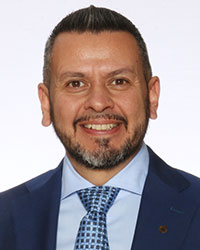 Edward Contreras
Edward Contreras
EVP/Chief Information Security Officer, Frost Bank
Edward has spent his career protecting companies and organizations from cyber risk and crime. He has guided companies through global breaches, cyber and digital transformation, and risk management. He spent 22 years in the Army as a signal Warrant Officer with deployments to combat zones and earning a bronze star in the process. His core expertise has positioned him to lead cyber teams at systemically important financial institutions while enabling business success with minimal risk exposure.
Topic: The Value of Data
The value of data is staggering and those who truly understand this value can help protect or harm a company. This topic will cover two use cases and demonstrate a real-world scenario of the power of data.
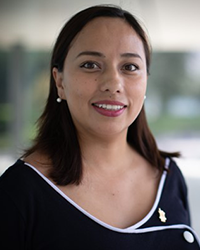 Rocío Alejandra Chávez Santoscoy, Ph.D.
Rocío Alejandra Chávez Santoscoy, Ph.D.
Assistant Research Professor at Tecnológico de Monterrey, Leader of National Center of Genomic Sequencing Tec BASE
Alejandra Chávez-Santoscoy leads the Research Group of Molecular and Systems Bioengineering at the School of Engineering and Science from Tecnológico de Monterrey. She has worked on the functional effect of phenolic compounds and other nutraceuticals in-vitro and in-vivo models and in clinical trials. Currently, her research has focused on understanding complex biological systems and designing and evaluating active ingredients for functional foods using mainly nanotechnology and multi-omics data. Her innovative projects earned her international recognition as Innovators under 35 LatAm 2017 Recognition by MIT Technology Review for developing a Functional Bread for chronic diseases.
Topic: Multi-omics Data Applied to Biological and Health Science
Adopting an integrative approach combining multi-omics data is imperative to study complex biological processes comprehensively. This allows a more accurate understanding of biological phenomena and therefore promises to be a strategy that allows generating solutions to real problems in different areas.
In this conference, we will talk about the integration of multi-omic data for the solution of problems in aquaculture and problems in the health area and how this comprehensive approach helps the understanding of biological systems and their functions.
We will talk about Totoaba macdonaldi and the challenges posed by the aquaculture of this carnivorous fish, endemic to the Gulf of Baja California. We will also give a multi-omic approach to the problem and how this approach allows the design of better diets for Totoaba.
We will also discuss multi-omics applied to tumors in patients with relapse and how multi-omics integration based on deep learning strongly predicts relapse in cancer.
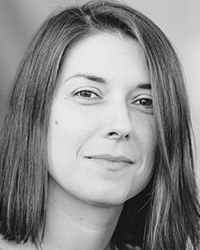 Gabriela Ciocarlie, Ph.D.
Gabriela Ciocarlie, Ph.D.
Associate Professor, Department of Electrical and Computer Engineering, The University of Texas at San Antonio, and Vice President, Securing Automation and Secure Manufacturing Architecture, CyManII
Dr. Gabriela F. Ciocarlie's expertise is in anomaly detection, distributed alert correlation, network and application-level security, cyber physical systems security, and distributed system security. Before UTSA, Gabriela was the Chief Product Officer at Elpha Secure and a senior technical manager of SRI’s New York City research hub. Gabriela holds a Ph.D. and an M.S. in computer science from Columbia University.
Abstract: From smart cities to smart cars to smart manufacturing, we live in a fully connected world that relies on data to make intelligent decisions. However, the benefit derived from using such intelligent systems depends on their security and privacy capabilities just as much as it depends on their functionality. In this talk, I will emphasize challenges and opportunities for trustworthy systems, with a focus on critical infrastructure.
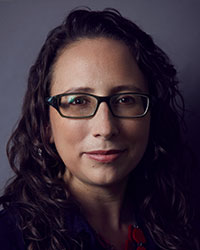 Kelle Cruz, Ph.D.
Kelle Cruz, Ph.D.
Associate Professor, Physics and Astronomy, CUNY Hunter College, Research Associate, American Museum of Natural History, Visiting Scholar, Flatiron Institute in New York, NY
Dr. Kelle Cruz is passionate about open science practices and resource sharing among scientists. She is the founder and Editor-in-Chief of the AstroBetter blog and wiki and serves on the Coordination Committee of the Astropy Project, the core software suite for Astronomy in the Python programming language.
Topic: Exploring the Intersection of Astronomy and Data Science: Statistical Methods, Exciting Discoveries, and Future Challenges
Data science permeates the field of Astronomy. I will highlight the statistical methods often used in astronomy, exciting discoveries made possible by data science, and the large projects on the horizon which will challenge our computational capabilities.
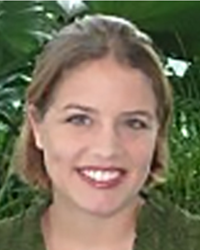 Bethany DeSalvo, Ph.D.
Bethany DeSalvo, Ph.D.
Senior Demographic Statistician, Social, Economic, and Housing Statistics Division, U.S. Census Bureau
Dr. Bethany DeSalvo serves as Senior Demographic Statistician for Small Area and Longitudinal Estimates in the Social, Economic, and Housing Statistics Division at the United States Census Bureau. Her multidisciplinary team is responsible for the research, development, and application of small-area estimation techniques to population-level data. Bethany leads the Census Bureau’s program on community resilience.
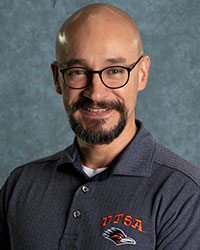 Juan Gutiérrez, Ph.D.
Juan Gutiérrez, Ph.D.
Professor, Chair of Mathematics, College of Sciences, The University of Texas at San Antonio
Dr. Gutiérrez is a mathematician specializing in multiscale data analysis and modeling of infectious diseases, from molecular interactions to epidemiological dynamics. He obtained his undergraduate engineering degree from Universidad Nacional de Colombia in 1996, and his doctoral degree in mathematics from Florida State University in 2009. His postdoctoral training occurred at the Institute for Theoretical and Mathematical Ecology at the University of Miami (2010), and the Mathematical Biosciences Institute at The Ohio State University (2011-12). He served as a professor of mathematics and bioinformatics at the University of Georgia between 2012 and 2019. Currently, he is a professor and the chair of mathematics at the University of Texas at San Antonio.
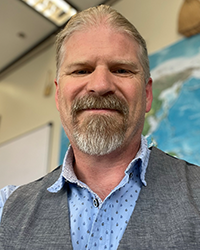 Marcus Hamilton, Ph.D.
Marcus Hamilton, Ph.D.
Associate Professor, Department of Anthropology, Core Faculty, School of Data Science, The University of Texas at San Antonio
Originally from London, UK, Marcus Hamilton is an anthropological archaeologist who studies hunter-gatherer societies in the past and present. His research spans archaeological field excavations to data analytics, including statistical modeling and machine learning. His work focuses on reconstructing human behavior in the past by analyzing data to build mathematical theories. He has been an Associate Professor of Anthropology at UTSA since 2018.
Topic: Towards an Informed Data Science of Anthropology
Data science is exploding through the social sciences, and anthropology is next. The sheer array of widely-accessible computational methods is rapidly redefining what it means to be an anthropologist and the role anthropology will play in the future. However, computational anthropologists are interested not only in analyzing data, but in the science of data science: we want to explain phenomena and build mechanistic theories of the world around us, not simply predict patterns. In this talk, I will discuss some recent applications of data science in anthropology from my own research, and discuss where an informed data science of anthropology might be headed in the future.
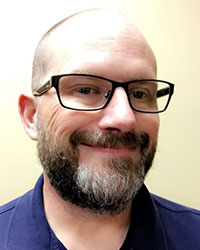 Jeffrey T. Howard, Ph.D.
Jeffrey T. Howard, Ph.D.
Associate Professor, Department of Public Health, College for Health, Community and Policy, The University of Texas at San Antonio
Dr. Jeffrey Howard is a health demographer and epidemiologist. His research is situated broadly within the Life Course Perspective and focuses on how harmful exposures, which he conceptualizes as injuries, contribute to accelerated aging and cause premature mortality by triggering physiological dysregulation. His research utilizes data science and machine learning techniques with large databases to investigate accelerated aging and premature mortality in the areas of military/veteran’s health, maternal morbidity and mortality, and substance/alcohol use. His research has been funded by the National Institutes of Health, the US Department of Health and Human Services, and the Department of Defense (DoD). He has authored and co-authored over 100 peer-reviewed research articles in top journals, including JAMA, Circulation, and Proceedings of the National Academy of Science.
Dr. Howard received his Ph.D. in Applied Demography from UTSA in 2014. He completed a postdoctoral fellowship in Epidemiology and Biostatistics with the Oak Ridge Institute for Science Education (ORISE) and the DoD, US Army Institute of Surgical Research and Joint Trauma System in 2016. From 2016 through 2018, Dr. Howad worked as a Health Scientist and Epidemiologist for the DoD Joint Trauma System, before joining UTSA as faculty in 2018.
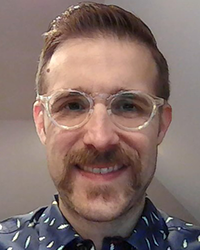 Jud Janak, Ph.D.
Jud Janak, Ph.D.
Principal Epidemiologist, Real-World Data Research and Analytics, Merative
Dr. Jud Janak has over 10 years of experience as an applied statistician and epidemiologist in the private sector, public sector, and academia. He has published over 50 peer reviewed studies on topics related to traumatic injury, accelerated aging, chronic disease, and real world pharmacoepidemiology. He was the Director of Epidemiology and Biostatistics for the Department of Defense Joint Trauma System from 2017-2020. He also was an Associate Director of Epidemiology at CorEvitas from 2020-2023. His responsibilities focus on leveraging real world patient and clinical registry data to study the safety and effectiveness of FDA approved therapies with key opinion leaders and pharmaceutical companies. Dr. Janak holds his master’s and doctoral degrees in Epidemiology from the University of Texas Health Science Center School of Public Health.
Topic: Moving from Statistical Modeling to Medicine
Modern computing and analytic methods have led to novel ways to inform clinical medicine; yet, the integration of findings from these approaches into clinical practice has hit major barriers. Before advanced analytic methods are utilized, extensive thought must be given to the clinically relevant problem that will be addressed, the pathophysiology and treatment of the disease of interest, the underlying healthcare system, and the optimal study design. For statistical modeling to impact clinical medicine, the final synthesis of findings and proposed implementation strategy to key stakeholders should consider these factors.
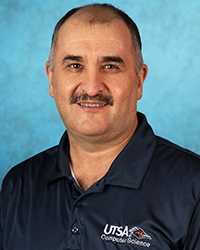 Turgay Korkmaz, Ph.D.
Turgay Korkmaz, Ph.D.
Professor, Interim Department Chair, Department of Computer Science, The University of Texas at San Antonio
Dr. Turgay Korkmaz received his Ph.D. in Electrical and Computer Engineering from the University of Arizona and joined the Computer Science Department at the University of Texas at San Antonio (UTSA) as an Assistant Professor in January 2002. He was later promoted to the position of Professor and currently serves as the Interim Chair of the Computer Science Department. Dr. Korkmaz's research focuses on computer networks, specifically on quality-of-service (QoS) issues in both wireline and wireless networks. He is also involved in research on network security and network science.
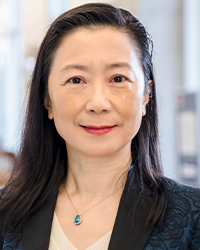 Jianwei Niu, Ph.D.
Jianwei Niu, Ph.D.
Associate Dean of University College, Professor of Computer Science, The University of Texas at San Antonio
Dr. Jianwei Niu has served as the Interim Director for the School of Data Science from 2019 to 2021 and was a Microsoft President’s Endowed Professor from 2020 to 2021. Dr. Niu received her Ph.D. in computer science from the University of Waterloo and started the tenure-track assistant professor position at UTSA in 2005. Her teaching was recognized by the Outstanding Graduate Mentor Award and the President’s Distinguished Achievement Award at UTSA. Dr. Niu has published more than 60 peer-reviewed articles and her research has been funded by NSF, DoD, NSA, THECB, Microsoft, MITRE, Data.org, and UTSA.
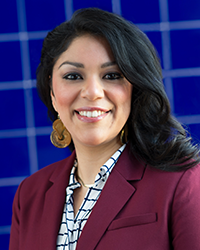 Vanessa A. Sansone, Ed.D.
Vanessa A. Sansone, Ed.D.
Assistant Professor of Higher Education, Educational Leadership & Policy Studies, The University of Texas at San Antonio
Dr. Vanessa A. Sansone is an expert on racial, spatial and class disparities related to higher education student retention, access, success, and how institutional, state, and national policies impact these issues. In 2020, she was named one of the 35 most outstanding women in higher education by Diverse: Issues in Higher Education. She was recognized by the American Association of Hispanics in Higher Education (AAHHE) and the Texas Association of Chicanos in Higher Education (TACHE) as a top Latina graduate scholar for her service and scholarly contributions to the Latinx community. She has been nationally selected as a faculty fellow with the Rutgers Graduate School of Education’s Center for Minority Serving Institutions and the Annie E. Casey Foundation.
Topic: Future Dreaming, Data Science, and Hispanic-Serving Institutions: Why the Power of Possibilities Matter More than Ever for Equality, Access, and Social Justice
The field of Data Science is facing challenges related to equality. However, there is now an opportunity and urgency to move away from outdated assumptions about the intended audience and purpose of the field, and instead envision a more inclusive approach to its application. This presentation will discuss the potential impact of having a School of Data Science at a Hispanic-Serving Institution and expose lesser-known truths and dreams about the future of its broader impacts.
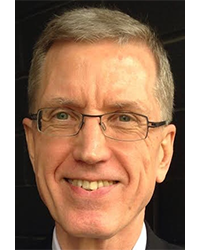 Tony Thrall, Ph.D.
Tony Thrall, Ph.D.
Technical Director, Office of the Chief Data Scientist of the National Security Agency
At NSA and across the U.S. Intelligence Community, Dr. Thrall and colleagues are building the foundations of a high-functioning data science ecosystem, including professional standards, readiness requirements, and the matching of skills to needs. Dr. Thrall's previous professional experience includes positions at UCLA's School of Medicine; Systems Applications (SAI, an environmental consulting firm); the Electric Power Research Institute; Pearson Education; Yahoo; eBay; AIG (insurance); and Bank of America. Dr. Thrall completed his Ph.D. in Statistics under David Brillinger at UC Berkeley.
Topic: Data Science Competencies in the Intelligence Community
Data science draws on many disciplines, including various forms of machine learning whose rapid advances are widely recognized as central to the current global competition. Technical advances tend to make the headlines, but equally important are the development and coordination of a multi-disciplinary workforce able to harness the technology to meet organizational needs. To this end, the Intelligence Community (IC) has identified competencies fundamental to a high-functioning data science ecosystem.
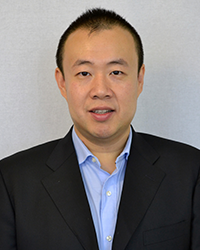 Wenbo Wu, Ph.D.
Wenbo Wu, Ph.D.
Chair and Associate Professor, Department of Management Science and Statistics, Carlos Alvarez College of Business, Graham Weston Endowed Professor, Core Faculty, School of Data Science, The University of Texas at San Antonio
Dr. Wenbo Wu is a statistician and data scientist. His active research areas include high-dimensional data modeling and inference, dimension reduction, variable selection and causal inference. Dr. Wu also collaborates with researchers in other domains such as finance, marketing, engineering, and computer science.
 Dashiell Young-Saver, M.S. Data Science
Dashiell Young-Saver, M.S. Data Science
High School Math Teacher, Founder & Executive Director, Skew The Script
While teaching at a high-poverty school on the southside of San Antonio, Dash threw out his traditional AP Stats curriculum and created lessons on topics that his students cared about: voter power, food deserts, the Spurs’s chance at winning the NBA title, online dating, and more. That year, more students at the school took and passed the AP exam than in the previous 16 years combined. During the pandemic, Dash put his lessons online, where they went viral. His website became Skew The Script – a nonprofit that provides free, socially relevant math lessons to more than 20,000 teachers and 400,000 students nationwide. In addition to running Skew The Script, Dash still teaches part-time in San Antonio and writes math lessons for The New York Times. He holds a BA and master’s in Data Science from Harvard.
Topic: Make it Relevant: How a Stats Curriculum from San Antonio's Southside Went Viral
After infusing relevant datasets - e.g. gerrymandering, food deserts, social media, and sports - in their curriculum, an AP Stats class on the southside of San Antonio had more students take and pass the AP Stats exam than in the previous 16 years combined. In this session, we'll share the story of that class and its curriculum - which is now used across the country. Then, we'll discuss ways to incorporate compelling real-world datasets in math, statistics, and data science courses, in order to boost engagement among traditionally underserved student groups.



